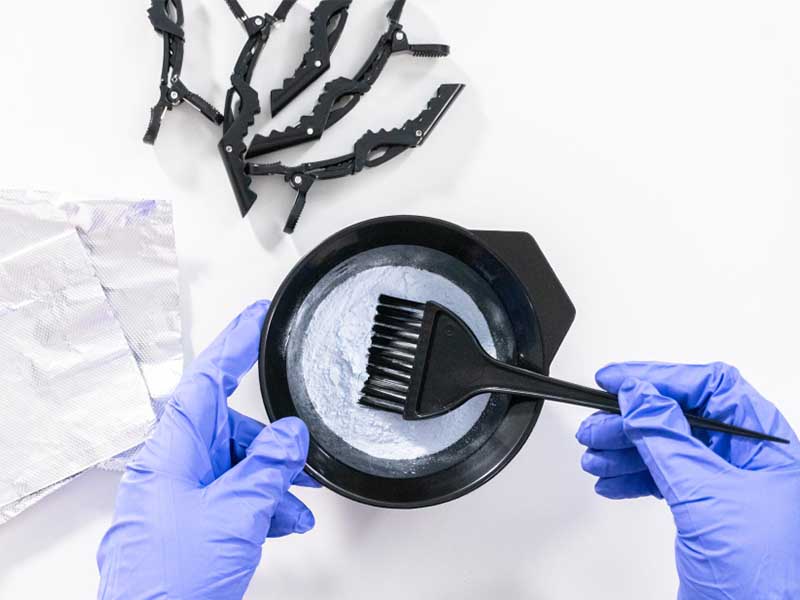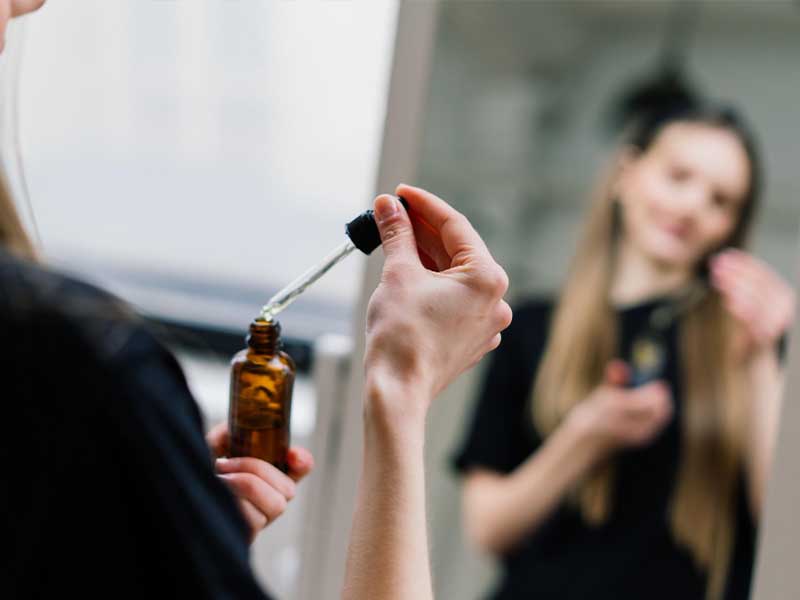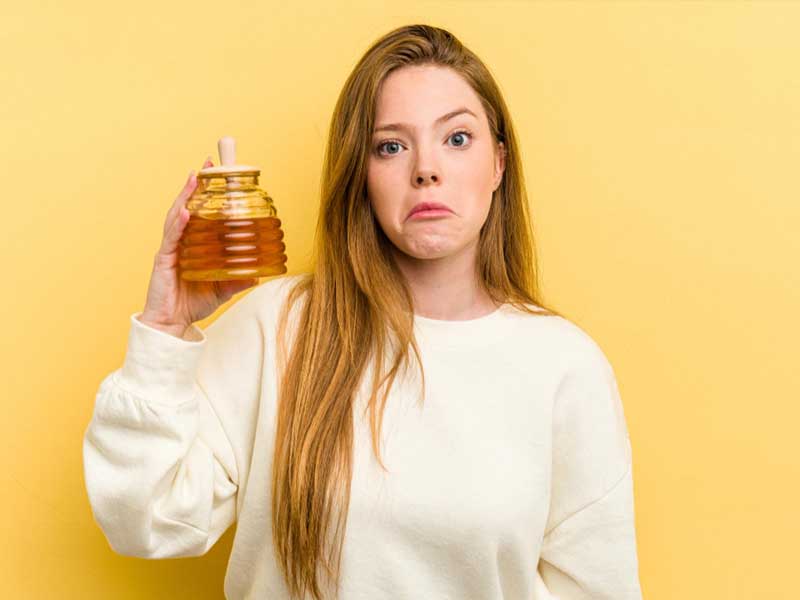Dry scalp is a common condition that affects many people around the world. It can be caused by various factors such as harsh weather conditions, chemical hair treatments, improper hair care, and even genetic predisposition. A dry scalp can lead to uncomfortable symptoms like itching, flaking, and dandruff. Fortunately, there are several effective dry scalp treatments and remedies that can help alleviate these symptoms and promote healthy hair and scalp.
In this article, we’ll discuss the common causes of dry scalp, and the various dry scalp treatments and remedies that you can try.
Dry Scalp Causes
Before we dive into the different dry scalp treatments and remedies, it’s essential to understand the common causes of dry scalp. Some of the most common causes of dry scalp include:
- Harsh Weather Conditions: Cold and dry weather can strip the scalp of its natural oils, causing it to become dry and flaky.
- Chemical Hair Treatments: Overuse of chemical hair treatments such as hair dye, bleach, and perm solutions can damage the scalp and cause it to become dry and flaky.
- Improper Hair Care: Poor hair care practices such as washing hair too frequently, using hot water to wash hair, and using harsh shampoos can strip the scalp of its natural oils and cause it to become dry.
- Genetic Predisposition: Some people are genetically predisposed to having dry scalps, and no matter how well they take care of their hair, they may still experience dryness and flakiness.

Dry Scalp Treatments
Several dry scalp treatments can help alleviate the symptoms of dry scalp. The following are some of the most efficient treatments:
- Using a Moisturizing Shampoo: Switching to a moisturizing shampoo can help replenish the natural oils in the scalp and prevent dryness and flakiness. Look for shampoos that contain natural ingredients such as tea tree oil, coconut oil, and argan oil, as they are known to have moisturizing properties.
- Using a Conditioner: Using a conditioner after shampooing can help lock in moisture in the hair and prevent dryness. Look for conditioners that contain natural ingredients such as shea butter, jojoba oil, and aloe vera.
- Applying a Scalp Oil: Applying a scalp oil such as coconut oil, jojoba oil, or castor oil to the scalp can help nourish the scalp and prevent dryness and flakiness. Massage the oil into the scalp and leave it on for at least an hour before washing it off with a gentle shampoo.
- Using a Scalp Scrub: Using a scalp scrub can help remove dead skin cells and product buildup from the scalp, which can contribute to dryness and flakiness. Look for scrubs that contain natural exfoliants such as sugar or sea salt, and use them once or twice a week.
- Avoiding Harsh Hair Treatments: Avoiding harsh hair treatments such as hair dye, bleach, and perm solutions can help prevent damage to the scalp and prevent dryness and flakiness.
- Protecting the Scalp from Harsh Weather Conditions: Wearing a hat or using a scarf to protect the scalp from harsh weather conditions can help prevent dryness and flakiness.

Dry Scalp Remedies
In addition to the above treatments, there are several dry scalp remedies that you can try to alleviate the symptoms of a dry scalp. Some of the most effective remedies include:
- Apple Cider Vinegar: Apple cider vinegar has antimicrobial properties that can help prevent scalp infections and alleviate itching and flakiness.
- Aloe Vera: Aloe vera has soothing and moisturizing properties that can help alleviate the symptoms of dry scalp.
- Tea Tree Oil: Tea tree oil has antimicrobial and anti-inflammatory properties that can help prevent scalp infections and reduce itching and flakiness.
- Baking Soda: Baking soda has exfoliating properties that can help remove dead skin cells and product buildup from the scalp.
- Honey: Honey has moisturizing and antimicrobial properties that can help prevent scalp infections and alleviate dryness and flakiness.
- Omega-3 Fatty Acids: Omega-3 fatty acids can help nourish the scalp and prevent dryness and flakiness.

Dry Scalp Solution
The key to finding a solution for a dry scalp condition that works for you is to identify the underlying cause of your dry scalp. If your dry scalp is caused by harsh weather conditions, protecting your scalp from the elements and using a moisturizing shampoo and conditioner may be enough to alleviate the symptoms. If your dry scalp is caused by chemical hair treatments or poor hair care practices, making changes to your hair care routine and avoiding harsh treatments may be necessary. Discover the most common scalp conditions and their symptoms, and effective treatments to soothe your scalp.

In some cases, a dry scalp may be a symptom of an underlying health condition such as psoriasis or eczema. If your dry scalp persists despite trying various treatments and remedies, it’s important to consult a healthcare professional to rule out any underlying health conditions.
Dry Scalp Care
Maintaining healthy hair and scalp is important not just for appearance, but also for overall health. If you suffer from a dry scalp, taking good care of your hair is especially important. Here are some tips for dry scalp care:
- Avoid hot water when washing your hair: Hot water can strip the scalp of its natural oils, leading to dryness and flakiness. Use lukewarm water instead, and try to keep the temperature as low as possible.
- Wash your hair no more than 2-3 times a week: Washing your hair too frequently can strip the scalp of its natural oils, leading to dryness and flakiness. Try to wash your hair no more than 2-3 times a week, and use a gentle shampoo and conditioner that is formulated for dry scalp.
- Use a gentle shampoo and conditioner: Look for shampoos and conditioners that are free of harsh chemicals and fragrances. Instead, opt for gentle products that contain natural ingredients such as aloe vera, tea tree oil, and honey.
- Avoid harsh hair treatments: Harsh hair treatments such as hair dye, bleach, and perm solutions can strip the scalp of its natural oils, leading to dryness and flakiness. Avoid or use these treatments as little as possible.
- Protect your scalp from harsh weather conditions: Harsh weather conditions such as cold, wind, and sun can dry out the scalp. Protect your scalp by wearing a hat or using a scarf when you’re outside in harsh weather.
- Use a scalp oil or serum to nourish the scalp: Scalp oils and serums can help nourish the scalp and prevent dryness and flakiness. Look for products that contain natural ingredients such as coconut oil, jojoba oil, and argan oil.
- Eat a healthy diet that includes foods rich in omega-3 fatty acids: Omega-3 fatty acids are essential for healthy skin and scalp. Include foods such as fatty fish, nuts, and seeds in your diet to help nourish your scalp from the inside out.

By following these tips, you can help prevent and manage dry scalp and maintain healthy hair and scalp overall. Remember to be patient and consistent with your hair care routine, and to choose products that are gentle and moisturizing.
Final Thoughts
Dry scalp is a common condition that can lead to uncomfortable symptoms such as itching, flaking, and dandruff. However, several effective treatments and remedies can help alleviate these symptoms and promote healthy hair and scalp. Some of the most effective treatments include using a moisturizing shampoo, using a conditioner, applying scalp oil, using a scalp scrub, avoiding harsh hair treatments, and protecting the scalp from harsh weather conditions. In addition to these treatments, there are several dry scalp remedies that you can try, including apple cider vinegar, aloe vera, tea tree oil, baking soda, honey, and omega-3 fatty acids.

For those who live in remote areas or prefer the convenience of at-home consultation, Remotederm offers online dermatology consultation that is accessible from the comfort of your own home, making it especially suitable for those living in remote areas.
FAQs
1. How often should I wash my hair if I have a dry scalp?
If you have a dry scalp, it’s recommended to wash your hair less than twice a week
2. When should I see a doctor about my dry scalp?
If your dry scalp is persistent and doesn’t improve with at-home treatments, or if you develop redness, inflammation, or open sores on your scalp, it’s important to see a doctor or dermatologist to obtain an accurate diagnosis and treatment plan.
3. Can diet affect scalp health?
Yes, a diet lacking essential nutrients such as omega-3 fatty acids, vitamins B and D, and zinc can contribute to a dry and itchy scalp.
4. Is it okay to scratch my dry scalp?
No, scratching a dry scalp can damage the skin and lead to further irritation and flaking.
5. Can a dry scalp lead to hair loss?
A dry scalp alone is unlikely to cause hair loss, but it can lead to hair breakage and damage if left untreated.
